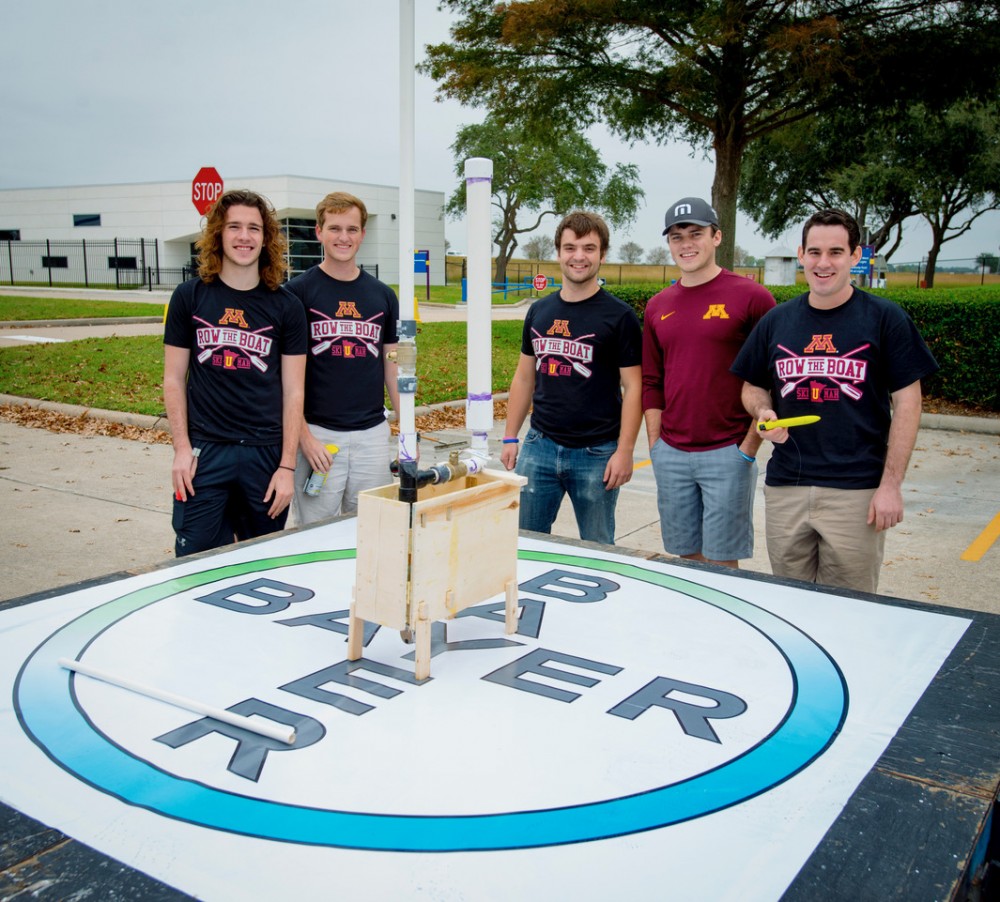Using only Alka-Seltzer tablets and water, the University of Minnesota Rocket Team launched a rocket 430 feet in the air — setting a Guinness World Record — as part of a national competition last week.
The team placed first in the Bayer Alka-Rocket Challenge, held at Space Center Houston on Nov. 8. They took home a prize of $25,000 for accomplishing what team members called a challenging task.
The Alka-Rocket Challenge, new this year, is sponsored by Bayer as part of their ongoing initiative, “Making Science Make Sense,” which aims to increase youth interest in science.
Carolyn Bender, Bayer spokesperson, said the company decided to start the collegiate competition after bringing similar small-scale experiments to elementary schools.
“We thought, ‘Why not try this on a larger scale and see how high these can go?’” she said.
The University of Minnesota, Northwestern University and Rutgers University competed as finalists in the competition, where participants were allowed to use up to 100 Alka-Seltzer tablets and unlimited amounts of water to launch their rockets.
Northwestern’s team was disqualified for equipment failure, and Rutgers’ rocket reached an altitude of 62 feet.
Kevin Schrader, a senior studying aerospace engineering, said the team had about three weeks to design and build the Alka-rocket.
“I thought that was a blitz at the time, but then after we got accepted, we had about another two weeks to get the rocket competition-ready,” he said. “That was the real time crunch.”
The team’s young roster posed a challenge during the construction process. Schrader said there are about three upperclassmen, while the majority of the 17-person Alka-rocket team were freshmen.
For example, the team had to dedicate its first meetings to covering rocketry basics instead of focusing on the specifics of the Alka-Rocket Challenge, he said.
Andrew Van Gerpen, an aerospace engineering first-year, said being a part of the team has helped him learn time management.
“I never thought I’d be this busy in my first semester of college,” he said. “It’s taught me that sleep isn’t an option sometimes.”
The three finalists gathered at Space Center Houston to launch their rockets in front of a crowd of students, industry officials and Mae Jemison — the first African American female astronaut to travel in space — who served as one of the competition’s judges.
“I expected to be shuttled out to a field in the middle of nowhere, and have two or three people watch us launch our rocket, but it was a big deal,” Schrader said.
The team formed strong bonds after spending weeks together in the University’s rocket lab, which Van Gerpen said allowed members to learn from each other throughout the process.
“[Winning] was very thrilling,” he said. “It was cool to see everything come together. The work definitely paid off in the end.”








